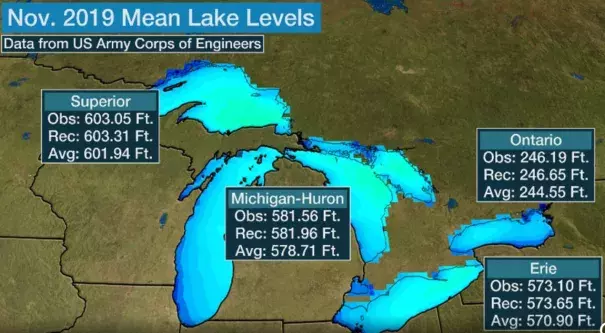The Great Lakes Have Been Filled to the Brim for Months and It Could Spell Trouble This Winter

Signals Summary: Climate change is making extreme rainfall more common, and in the Midwest, changes in atmospheric circulation patterns due to global warming are increasing the total amount of precipitation.
Article Excerpt: Near-record high water levels on the Great Lakes could increase the threat of coastal erosion and lakeshore flooding this winter.
...
The Great Lakes set several monthly records for highest levels during the May through August period and lakes Erie and Ontario set all-time records this summer.
The reason for the record-high levels this year in the Great Lakes? Excessive precipitation in the region.
Above-average precipitation has plagued the Midwest for most of this year. The dominant pattern featured a parade of storms that dumped heavy snow and rain in the central U.S. since late last winter.
Chicago, Green Bay and Muskegon, Michigan, have all experienced their wettest year-to-date on record as of Dec. 8, according to the Southeast Regional Climate Center. Most locations in the Midwest have seen a top-10 wettest year-to-date.


